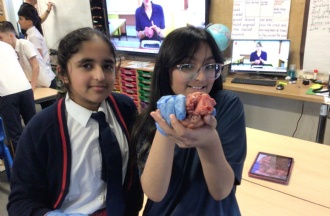
07 Feb 2025
We live in an increasingly scientific and technological age where children need to acquire the knowledge, skills and attitudes to prepare them for life in the 21st century. We, at St Mary and St Joseph's School believe that the teaching of science develops in children an interest and curiosity about the world in which they live, and fosters in them a respect for the environment.
We believe science encompasses the acquisition of knowledge, concepts, skills and positive attitudes. Through the programmes of study in the National Curriculum science document children will acquire and develop these skills throughout their Primary years.
We believe that science promotes communication in a specific and precise language involving mathematical and logical thinking. It allows children to develop ways of thinking. It allows children to develop ways of finding out for themselves and gives them in practice in problem solving.
As their knowledge and understanding increases and they become more proficient in selecting and using scientific equipment and collating and interpreting results they become increasingly confident in their growing ability to come to conclusions based on real evidence. Science fosters a healthy curiosity in children about our universe and promotes respect for the living and non living. It allows children to develop original ideas and a questioning attitude.
In science, pupils are encouraged to be open-minded and to try and make sense of what they see and find out. The main focus of approach will be through open-ended activities where we encourage children to recognise the need for fair testing.
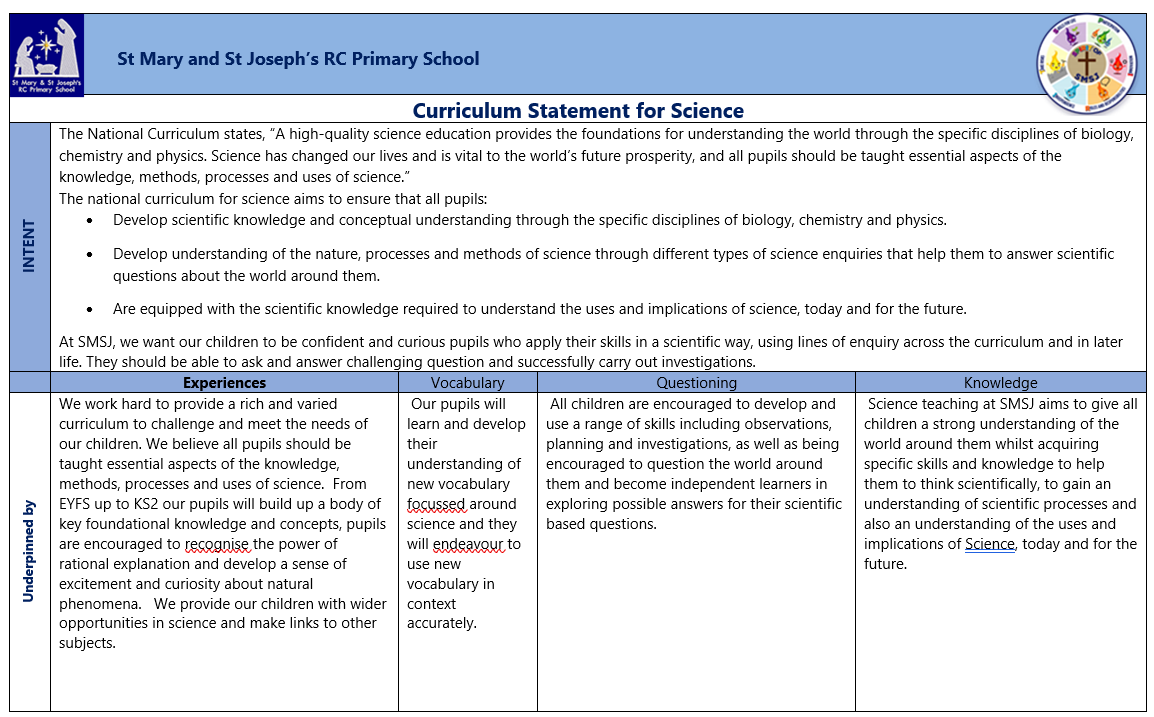
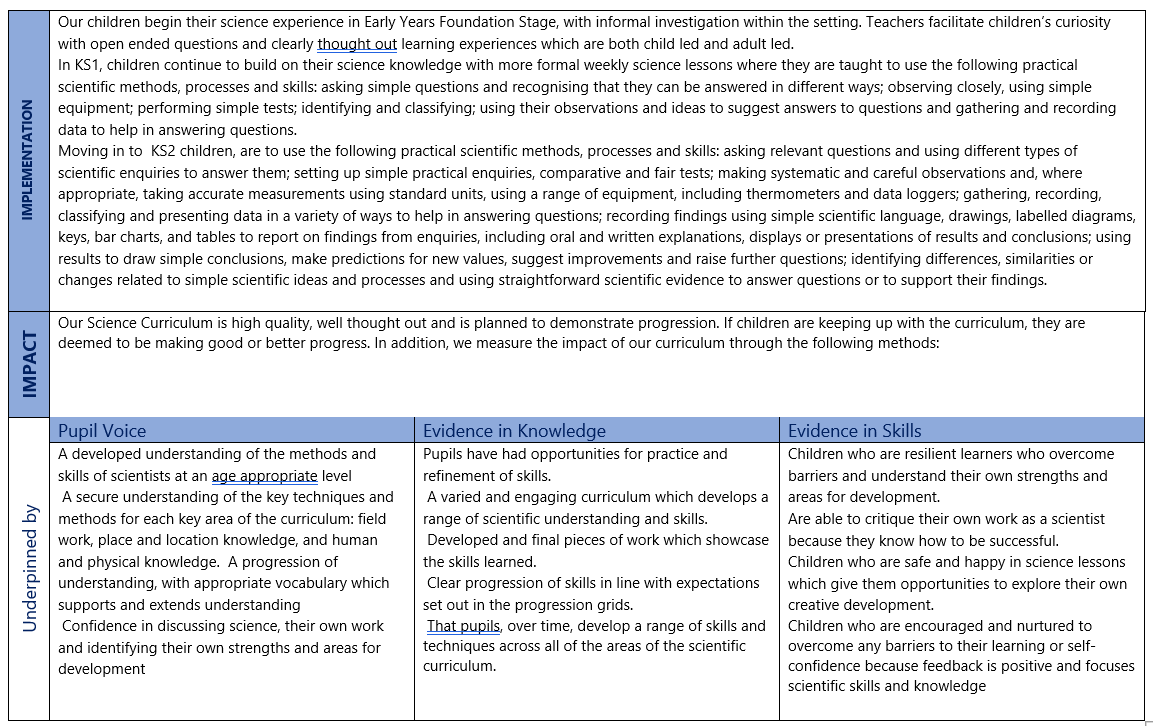
At St Mary and St Joseph's we use the Kapow Science scheme of work. Through this we deliver a well-structured, engaging Science scheme, aligned with the National curriculum.
The long-term plan outlines the progression of skills and knowledge in Science, ensuring that pupils build upon their learning each year in a spiral curriculum. In a spiral curriculum, children are introduced to a topic at a basic level with the teacher gradually increasing the complexity of the concepts being taught.
Progression is broken down into the following key areas:
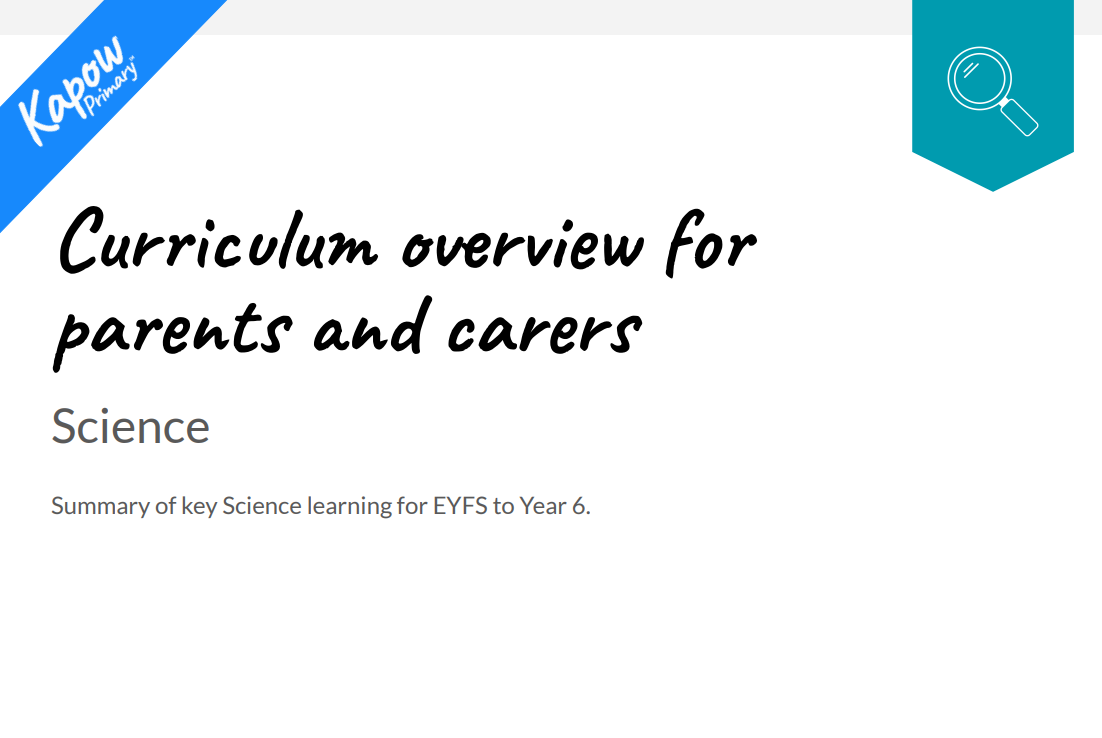
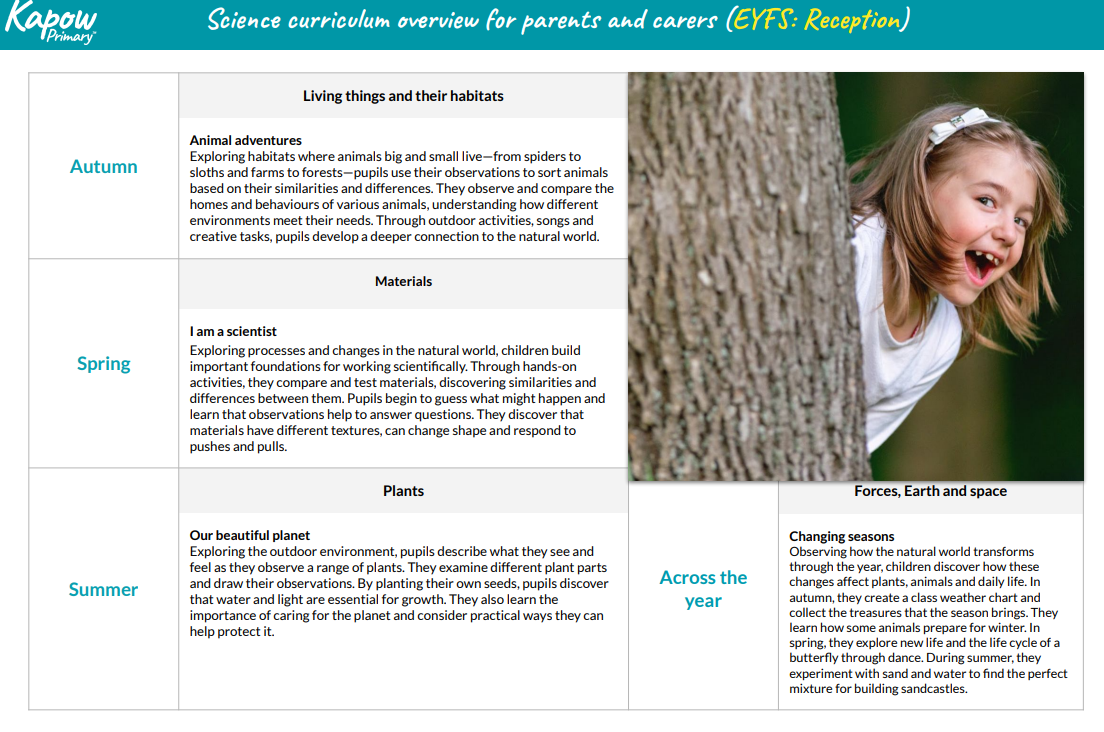
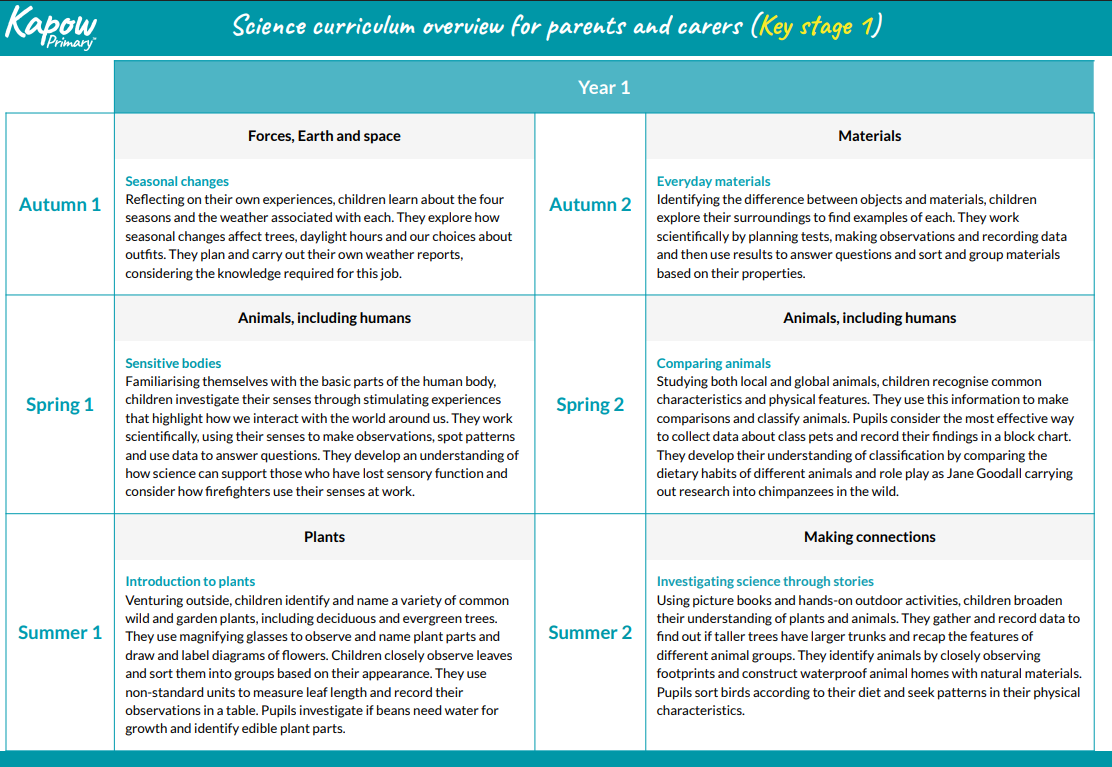
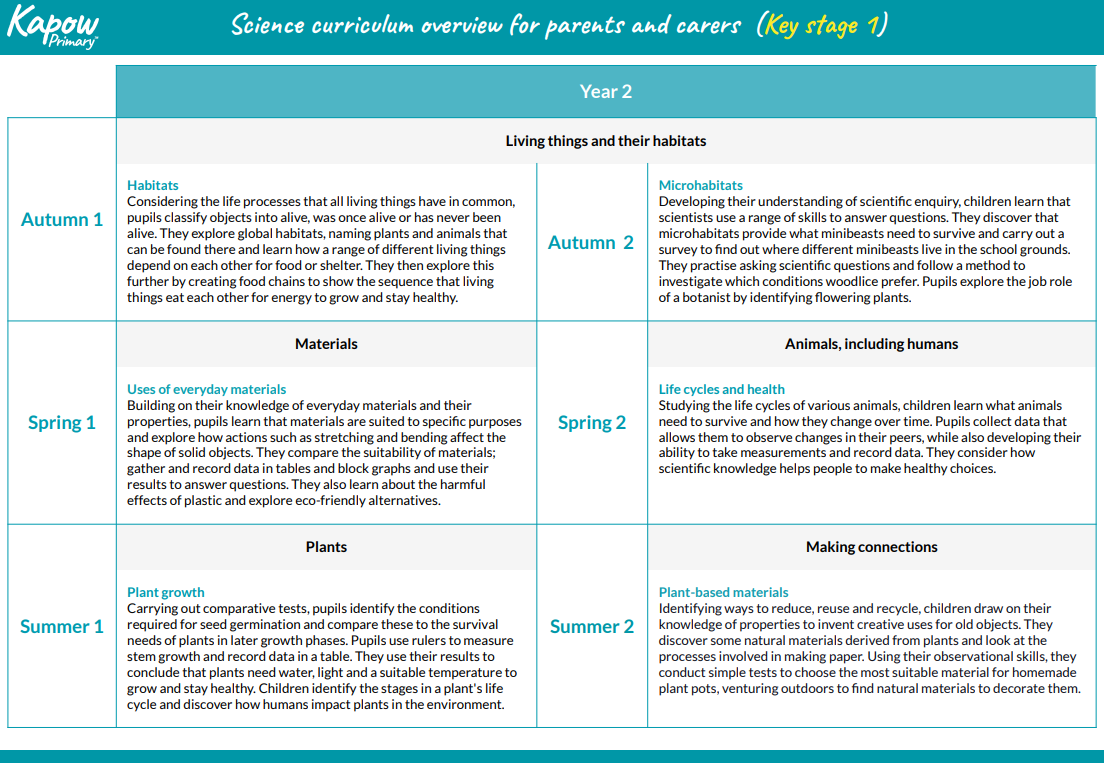
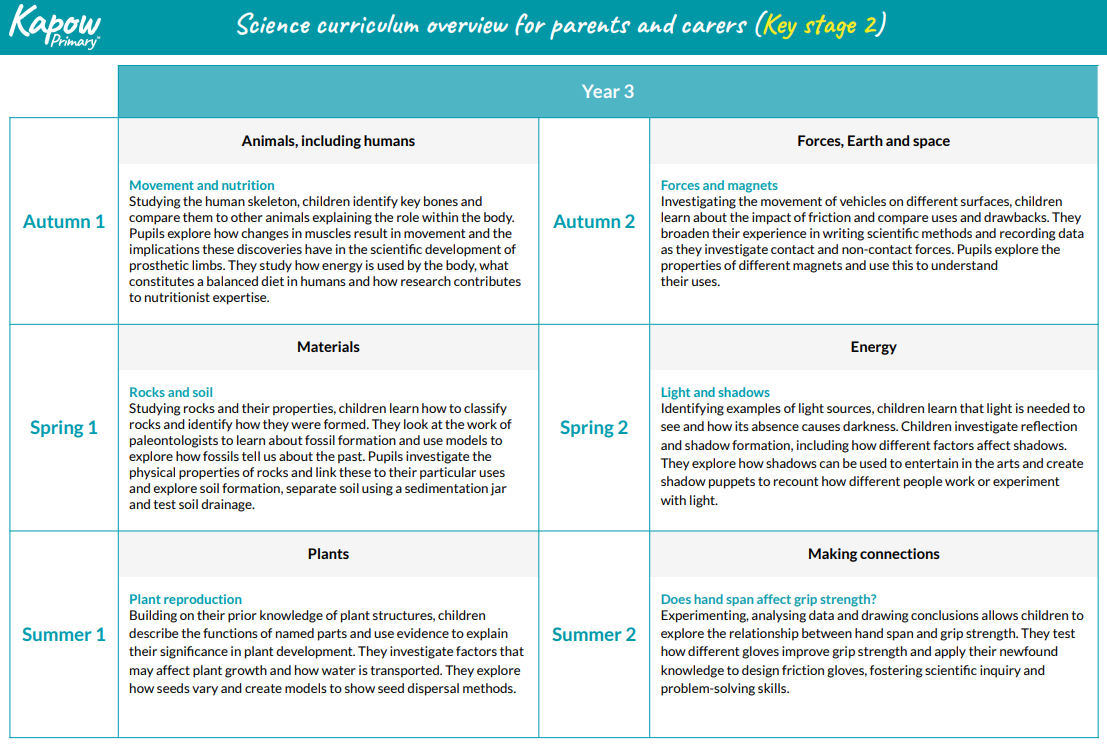
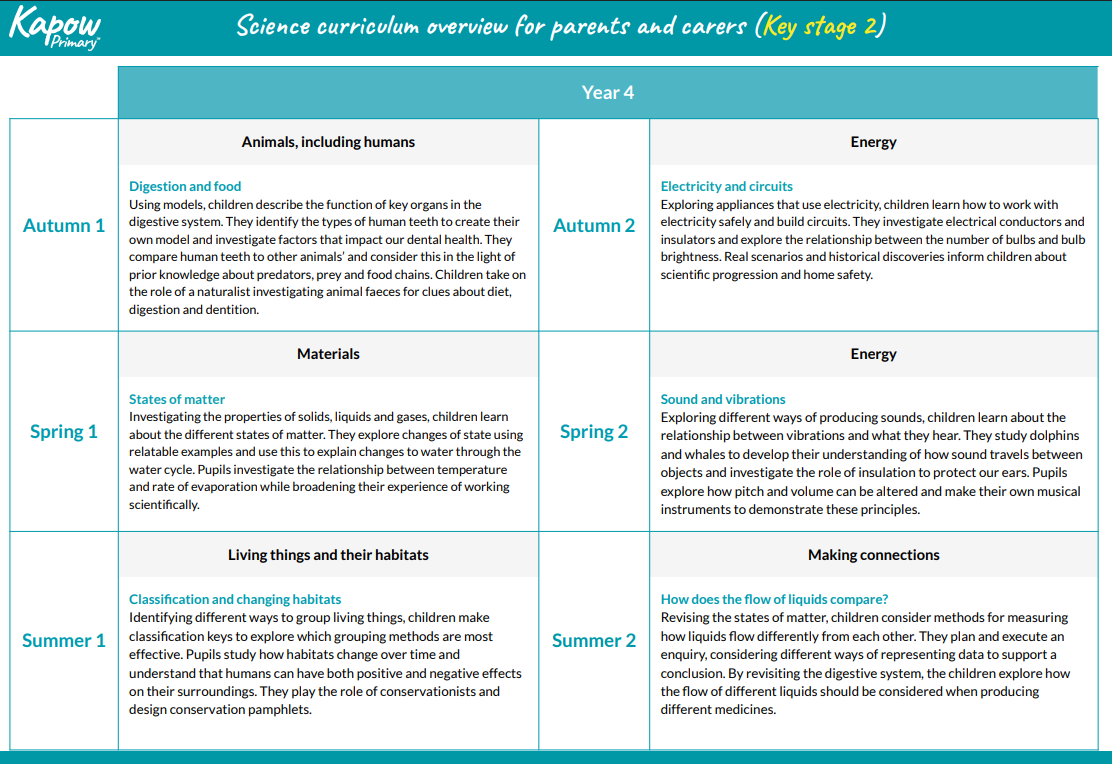
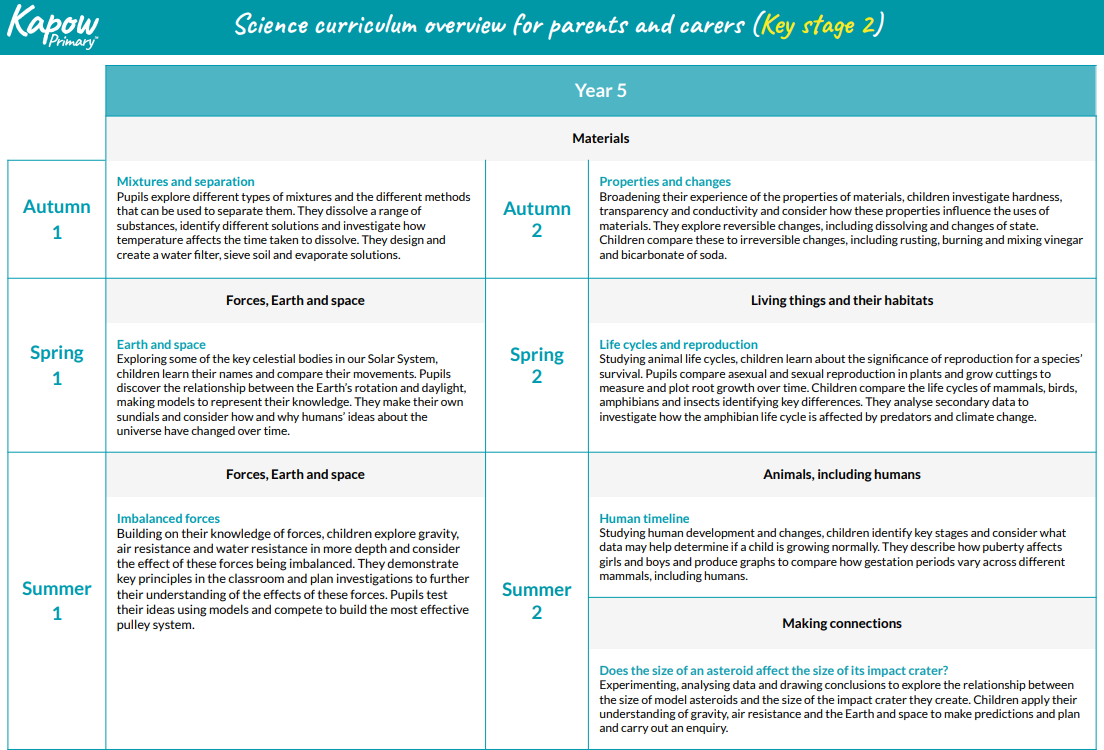
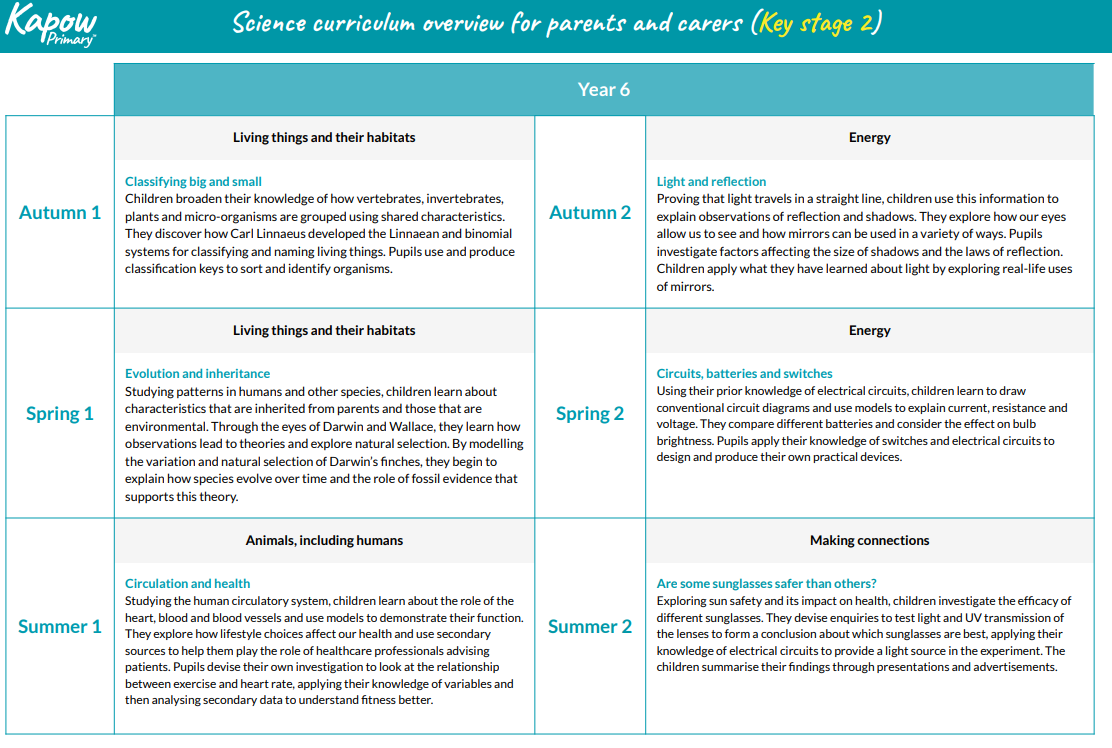
Science Week 2024
This year the children throughout school have been using heart rate monitors to investigate a variety of scientific theories.
Reception, Year 1 and Year 2 - Which exercise makes our heart beat the fastest?
Year 3 and Year 4 - How long does it take my heart rate to return to normal after exercise?
Year 5 and Year 6 - Which exercise has the biggest impact on recovery time?
The children were given the question, they were asked to design a test to investigate the question and then were asked to record their findings.
It has been great to see the progression of skills relating to how data can be recorded in science. Please look below for photos of the children conducting their tests and examples of work.